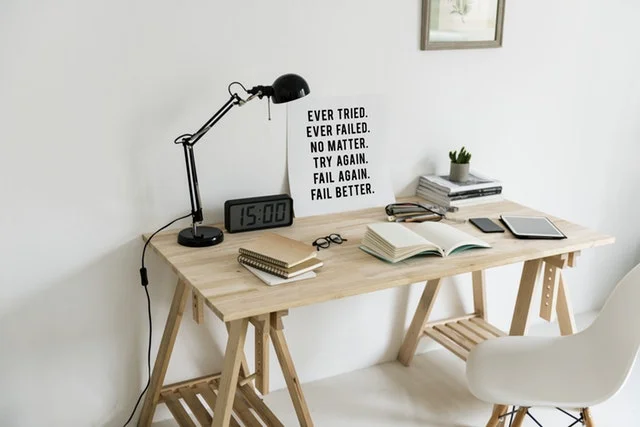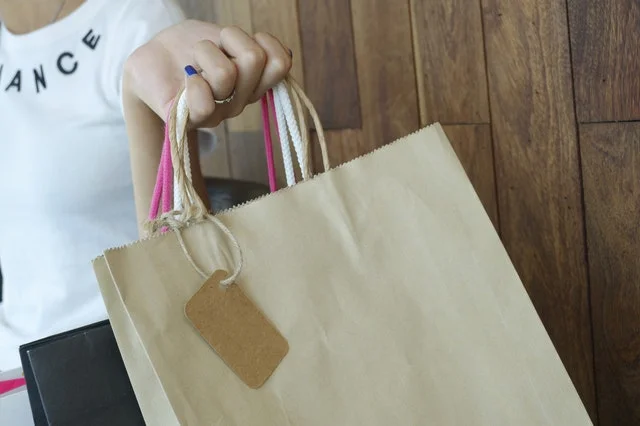What is Mindful Living?
“We no longer live life. We consume it.” ― Vicki Robin
practice awareness
The first question that most people ask me when we visit about mindful living is, “What does it actually mean to live mindfully?”
Choosing to live more mindfully is an active decision. It is a conscious effort on our part to click off autopilot and take the time (and mental energy) to identify our values, and then align our choices to prioritize those values. It is the combination of seemingly small changes in our daily live, that add up to major changes in our lifestyle - and life satisfaction - overtime.
Another way to look at mindful living is being awake in the world and the impact of our decisions. Becoming more aware of the impact of our daily decisions, how it effects you, your family, society, and the environment. Once we’re aware of the impact of our decisions, most people choose to become more intentional about their choices, and try to better align their values with their day-to-day lifestyle.
More Moments
One of the most noticeable factors when you start living more mindfully is a change in consumption habits. You’ll be more aware of how you’re spending your time, what you eat, what you wear, and perhaps how often or where you shop.
You may start to shift away from the more material consumption of goods and choose to consume more moments instead. For instance, you may choose to go for a walk in the park instead of going shopping with a friend. Or maybe you end up having a friends over to try making new recipe together instead of going out to eat. Maybe you'll even decide to invite friends on a camping trip instead of eating out at a restaurant.
Identify Your Values
Breaking old habits can be hard. However, most people find the transition to more mindful living relatively easy once they’ve taken the time to outwardly identify their values. Great satisfaction can be found in having the ability to choose the lifestyle you want - and I’ve yet to find a person who isn’t happier with their choice to live more mindfully — because they’re living a lifestyle that ends up bringing them more authentic and lasting happiness.
In most cases, people who decide to live more mindfully often find that their values include spending time with friends and family, enjoying the outdoors, and less about the consumption of material possessions.
Consume Less Stuff
Focus on creating more shared moments and less on buying more stuff. It’s not easy to shake our hyper-consumer mindset - especially when we're inundated with ad's - but if we practice awareness of our emotions and the effects of outside influencers we'll be better able to choose how spend our time and money. Without awareness and a focus on your values, it's easy to be swayed into consuming things that may not really be that important to you.
Think Small
Small changes can have a big impact. Once we're mindful of our consumption habits, we can start to see how small changes in our environment can nudge us to make choices that are better for us and our society.
If you're wanting to make healthier meals from scratch, it's important to make sure you enjoy going into your kitchen and that its easy to access all the ingredients you need. If you leave the cupboards full of junk food - or no food at all - you'll be less likely to reach for the healthy meals first.
On a broader scale, take the use of paper towels or paper napkins. Reducing your usage at home is an easy way to save money, trees and cut down on carbon emissions, but what if signs were posted in public bathrooms about using less paper towels? If 90% of customers used just one paper towel - instead of grabbing a huge handful - that could create a massive savings for the environment. So by getting everyone to consume less, we'd all do better.
These simple examples show the power small changes have to create massive economic and environmental impacts- all while making us happier and healthier!
choose What makes you Happy.
Choosing to be more aware of our consumption habits forces us to understand why we’re making certain decisions - and if those decision align with our values and ideal lifestyle.
Money makes you happier, but only to a certain point. Real and lasting happiness comes from having a sense of purpose in our everyday life and spending our time and money on experiences - not on buying more stuff.
Too often people wait to focus their energy on the things that really make them happy (and healthy!) when something drastic happens. A car accident, a death, a bad diagnosis, but by then it's often too late. Our time is limited, so don't waste it by pursing things that you don't value. Instead, actively choose to live a more satisfying life by living more mindfully - and consuming more moments over mementos.
Activity:
Take a moment to write down your:
1. Top 5 core values.
2. Your idea lifestyle.
3. Three people you'd like to spend more time with.
4. Three activities you'd like to spend more time engaged in.
How are you currently consuming your time and money? Does your current lifestyle aligned with your core values? Do you see any gaps? What's blocking you from living your ideal lifestyle? How can you spend more time with the people you care about or pursing the activities you're interested in?
Next up:
One of the best ways to ensure we focus on the things we really value is to clear out our physical spaces of the stuff that no longer serves us, or clutters our ability to make good decisions.












